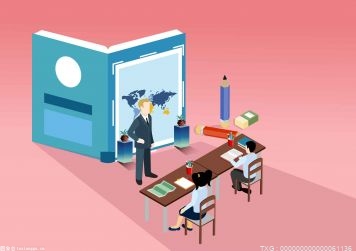焦点速读:Poll: Americans doubt value of college degree
A majority of Americans think a college degree isn"t worth the cost, according to a new poll.
The Wall Street Journal survey released Friday, which was conducted with NORC at the University of Chicago, a nonpartisan research organization, found 56 percent of Americans believe earning a four-year degree isn"t worth the cost, with skepticism strongest among people ages 18-34.
 (资料图)
(资料图)
In 2013, 53 percent of Americans were bullish on college, and 40 percent weren"t. In 2017, 49 percent of Americans thought a four-year degree would lead to good jobs and higher earnings, compared with 47 percent who didn"t.
People with college degrees are among those whose opinions have dropped the most, with 42 percent of them saying that it wasn"t worth it, up more than 10 percentage points from the two polls last decade.
Paulo Eskitch, a 47-year-old violinist who lives in Tulsa, Oklahoma, told the Journal that he is less emphatic about whether his daughter, now 7, should enroll in college when the time comes.
Eskitch said he has a master"s degree in music and earns about $30,000 a year playing in several different orchestras. He said a degree has become necessary in his field, but he sometimes wishes he had pursued welding as a career because he thinks he could have made more money.
That said, he anticipates supporting his daughter if she decides to pursue higher education because there aren"t enough good alternatives.
"There are some fields you just can"t enter unless you have a college degree," he said. "I"m not saying that"s right, but it"s the way it is."
The Journal survey showed that women and older Americans are driving the decline in confidence for going to college. People over the age of 65 with faith in college declined to 44 percent from 56 percent in 2017. Confidence among women fell to 44 percent from 54 percent, according to the poll.
"These findings are indeed sobering for all of us in higher education, and in some ways, a wake-up call," Ted Mitchell, president of the American Council on Education, which counts more than 1,700 institutions of higher education as members, told the Journal. "We need to do a better job at storytelling, but we need to improve our practice, that seems to me to be the only recipe I know of regaining public confidence."
Mitchell said student debt, which has reached $1.7 trillion, and the 60 percent graduation rate at four-year colleges are two of the biggest problems undermining confidence in the sector.
Enrollment in US colleges has declined by about 15 percent over the last decade while the growth in alternative credentials, including apprenticeships, has increased sharply, according to the survey.
The poll found disaffection has spread to all age groups as well as residents of cities and suburbs.
Bryan Caplan, an economist at George Mason University who has written extensively about higher education, told the Journal that he thought college was still worth pursuing for "A" students in high school. He suggested "B" students enroll only if they are willing to pursue fields such as economics or engineering because those majors have, on average, a strong return on investment.
That many colleges charged full tuition during the pandemic when classes were delivered online was a mistake that hurt the sector"s reputation, he said.
The robust labor market also may have contributed to college enrollment falling, Business Insider reported March 26.
Alicia Sasser Modestino, associate professor at Northeastern University, told Insider that during COVID disruptions, "many would-be college students took jobs to support their households and as wages have risen, there is even less of an incentive to enroll".
The tight labor market also has meant that employers are willing to drop a college degree to be able fill some jobs and have even been willing to train workers," Modestino said. "For Gen Z, it"s certainly the case that the "college for all" mentality has been replaced with "show me the money.""
Some companies have dropped college-degree requirements for some positions, including at IBM, Google, and Bank of America, Insider reported.
Between 2017 and 2019, 46 percent of middle-skill and 31 percent of high-skill jobs did so, according to a 2022 report from the Burning Glass Institute.
Doug Shapiro, executive director of the National Student Clearinghouse Research Center, told Insider that undergraduate enrollment has been steadily declining since the Great Recession.
Shapiro added that "colleges and universities haven"t really started to recover yet from the large drops in enrollments that started at the beginning of the pandemic in fall 2020".
"We think that there is going to be a catch-up of closures in 2023, and probably into 2024," said Rachel Burns, a senior policy analyst for the State Higher Education Executive Officers Association. "So it"s hard to predict when it"s going to happen and which type of institutions that it will happen to, but we anticipate a catching-up period to account for the past two years for colleges that would have closed but didn"t."
标签:
- 1 苹果开始研发20寸折叠屏 折叠状态下为15.3英寸
- 2 手机电池保养小技巧 先来看看你有没有这样的习惯
- 3 小米13创新搭载科技纳米皮背壳 更耐脏还不变色
- 4 平台2023年元旦假期机票搜索量涨超5倍 这次假期不需要调休
- 5 2023年旅行搜索量同比上涨超900% 大家明年有什么计划吗?
- 6 iQOO 11系列正式亮相 批搭载高通第二代骁龙8移动平台
- 7 AMD最火处理器正悄悄涨价 当前渠道最热销的CPU处理器是哪款?
- 8 智能手表销量继续增长 苹果在智能手表品类市场份额上涨至20%
- 9 国内快递业务量再创新高 快递业务量提前7天完成超千亿件指标
- 10 耳机也要付费解锁功能了 这些附加功能确实可以按需订阅




 OPPO A1 Pro开售 凭借设计美感和实用性能成功出圈
OPPO A1 Pro开售 凭借设计美感和实用性能成功出圈
 iQOO 11系列爆料升级“性能铁三角” 实现能效速度突破
iQOO 11系列爆料升级“性能铁三角” 实现能效速度突破
 微星推出全球首款240Hz QD-OLED超宽屏曲面游戏显示器 将在明年年初正式发布
微星推出全球首款240Hz QD-OLED超宽屏曲面游戏显示器 将在明年年初正式发布
 GalaxyS23Ultra可能会取代iPhone14Pro系列 成屏幕最亮智能手机
GalaxyS23Ultra可能会取代iPhone14Pro系列 成屏幕最亮智能手机
 iOS 16可能是苹果Bug最多的系统 曾面临巨大激活问题
iOS 16可能是苹果Bug最多的系统 曾面临巨大激活问题
 折叠屏iPhone V全球首发 采用iPhone X原装屏幕改装而成
折叠屏iPhone V全球首发 采用iPhone X原装屏幕改装而成
